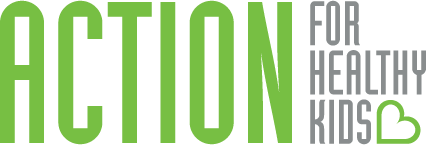
Confident Connections is a collection of resources developed by Action for Healthy Kids in partnership with the CDC Foundation. The collaboration was designed to empower families by providing opportunities for parents to voice their concerns about youth mental health, learn about key findings related to youth mental health, and provide insight into the development and dissemination of parent resources. Parents and caregivers were engaged in this process during two nationwide surveys, a series of caregiver focus groups, and a Parent Advisory Board. You can read more about our survey and focus group findings here.
Why Confident Connections?
Recent studies consistently show that a strong parent-child relationship supports youth mental wellness and protects against mental health challenges. For example:
- A 2020 study showed that positive parent-child relationships were associated with higher levels of resilience for the child in young adulthood.1
- The 2021 Youth Risk Behavior Survey demonstrated that higher levels of parental monitoring is a key protective factor in youth health and well-being.2 This suggests that efforts by parents to foster an open, honest relationship with their child can support overall well-being.
- A 2023 study demonstrated that a healthy connection between parent and child led to positive mental health outcomes for adolescents.3
We know that parents are a critical component to strengthening youth mental health, and Confident Connections gives them resources to be able to take on this role with confidence.
What do we mean by mental health?
Mental health refers to our emotional, psychological, and social well-being. It influences how we make and keep relationships, how we express our feelings, how we make decisions, and how we manage the stresses, challenges, and joys of life. It is influenced by our environment, experiences, and backgrounds. It is also deeply connected to physical health: our mental health can affect our physical health, and our physical health can impact our mental health. For example, having depression (a mental health condition) can increase a person’s risk for heart disease (a physical illness), and having diabetes (a physical illness) can increase a person’s risk for anxiety (a mental health condition).
Mental health itself is not good or bad; it is one dimension of well-being. Just as parents learn to recognize some basic signs of physical illness like fever, rash, or cough, parents can also learn some basic signs that their children may be struggling with a condition that’s impacting their mental health like loneliness, anxiety, or depression.
Mental health is relevant to everyone and at every stage of life. A person’s mental health can change over time and may be influenced by life circumstances and events, hormonal changes, genetic factors, relationships, medical conditions, and alcohol or drug use.
Social-emotional wellness is related to mental health because it has to do with the skills and strategies that people use to identify and manage their thoughts and feelings, establish and maintain their relationships, cope with challenge and adversity, and make healthy short- and long-term decisions.
Explore the Confident Connections site map to view resources available to support youth mental health.
SPREAD THE WORD!
Download a Confident Connections flyer in English, Mandarin and/or Spanish and share these resources with your network.
References:
